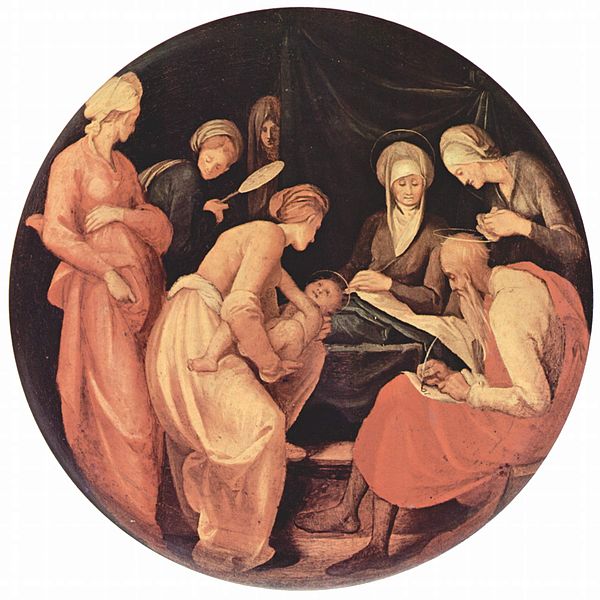 “Behold, I am sending my messenger ahead of you; he will prepare your way before you.”
“Behold, I am sending my messenger ahead of you; he will prepare your way before you.”
This weekend’s celebration of the birth of John the Baptist is a great opportunity to delve into Scripture with Logos. While reflecting on this weekend’s liturgy, I opened the readings from the Lectionary and linked the Catena Aurea, allowing me to read the writings of the Church Fathers alongside the sacred text. This reflection from St. Ambrose caught and held my attention:
“The holy Evangelist has especially remarked, that many thought the child should be called after his father Zacharias, in order that we might understand, not that any name of his kinsfolk was displeasing to his mother, but that the same word had been communicated to her by the Holy Spirit, which had been foretold by the Angel to Zacharias. And in truth, being dumb, Zacharias was unable to mention his son’s name to his wife, but Elisabeth obtained by prophecy what she had not learnt from her husband. Hence it follows, And she answered, &c. Marvel not that the woman pronounced the name which she had never heard, seeing the Holy Spirit who imparted it to the Angel revealed it to her; nor could she be ignorant of the forerunner of the Lord, who had prophesied of Christ. And it well follows, And they said unto her, &c. that you might consider that the name belongs not to the family, but to the Prophet. Zacharias also is questioned, and signs made to him, as it follows, And they made signs to the father, &c. But since unbelief had so bereft him of utterance and hearing, that he could not use his voice, he spoke by his hand-writing, as it follows, And he asked for a writing table, and wrote, saying, His name is John; that is, we give no name to him who has received his name from God.”
From there, I was able to move back through the cross-references to the announcement of John’s birth to get a deeper perspective on the readings and on St. Ambrose’s reflection—as well as additional reflections from the linked Catena Aurea. I was even able to jump back to the prophecy in Malachi 3:1 and compare other Bible passages regarding John.
The Logos version of the Catena Aurea is an incredible wealth of insight and reflection from great theological minds, compiled by St. Thomas Aquinas and edited by John Henry Newman. It’s linked to around 3,000 patristic references found in the works of the Early Church Fathers, so you can instantly explore the broader context of many quotes. This means the Catena can function as a standalone commentary or as a starting point for deeper study of the Church Fathers.





